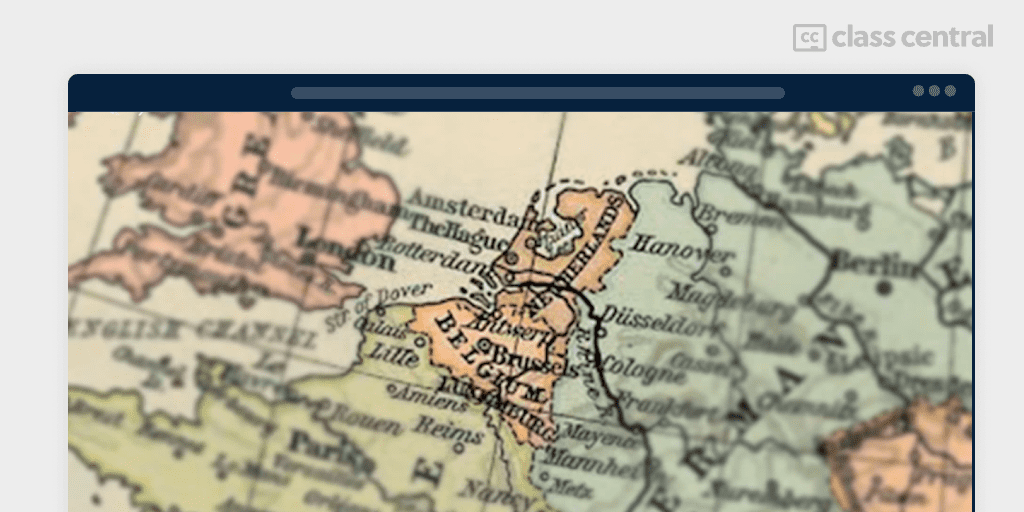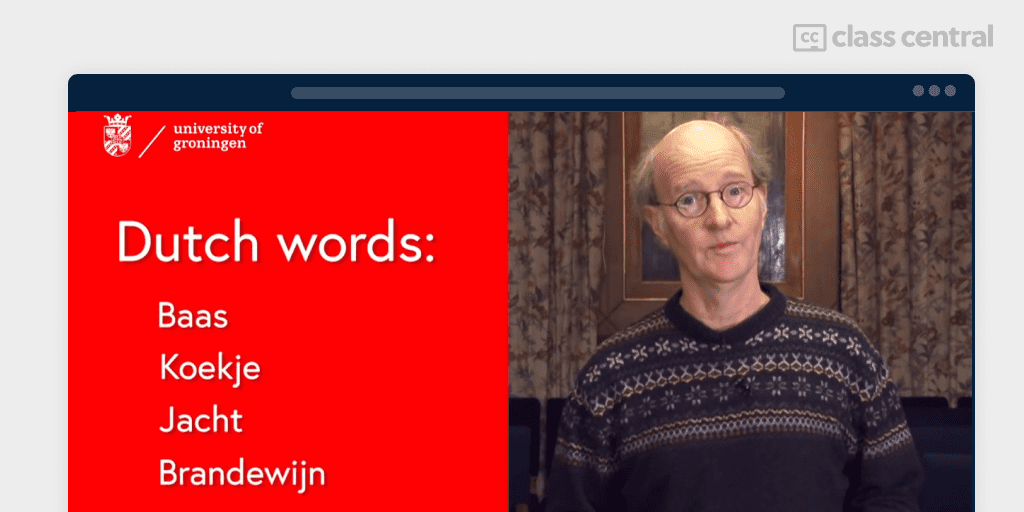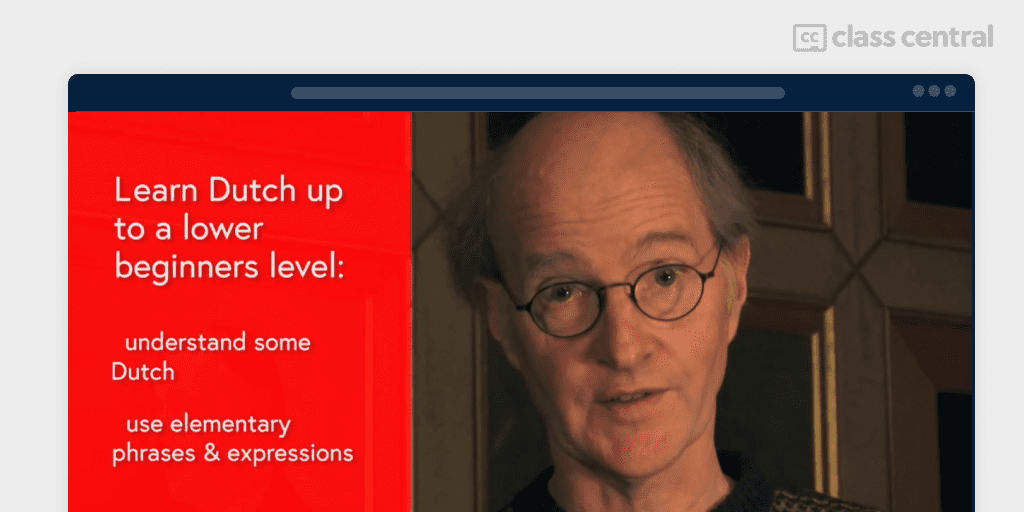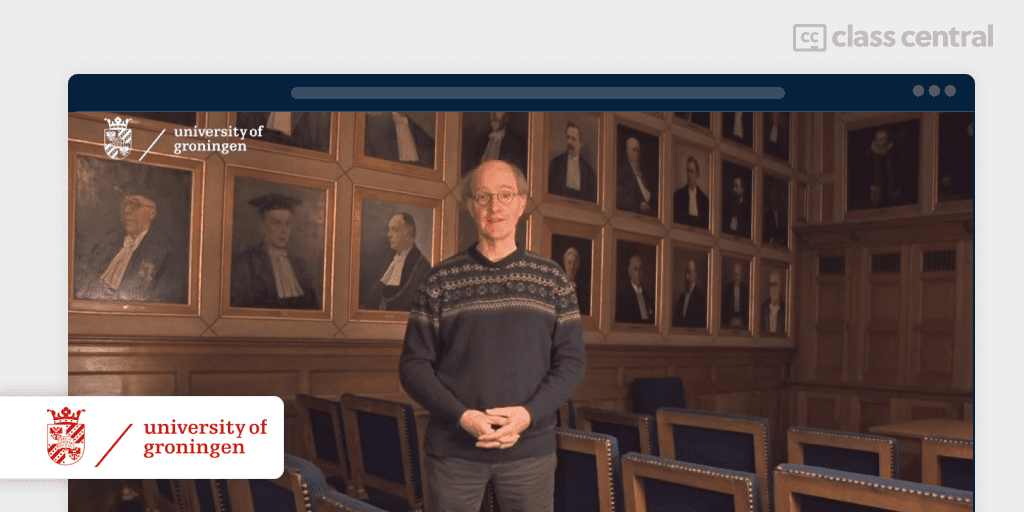Course Review: Introduction to Dutch by University of Groningen
Learner-centered and task-oriented course which comprises all elements of communicative competence: grammatical, sociolinguistic, discourse, and strategic.
This is a review by Francis Kasibante, a Ugandan teacher and a critical political writer who is interested in learning foreign languages.
Dear readers, I have just completed an online Introduction to Dutch course by the University of Groningen based on Level A1 of the Common European Framework of Reference (CEFR) that lasted for three weeks. It is the best online course I have ever studied. I enjoyed the course because of the fact that the materials were engaging, motivating, and amazingly run by experienced educators who explain thoroughly the content which helps learners to both; improve their speaking skills and practice without feeling anxious about the subject matter.
I once started learning a Dutch beginners course on the Futurelearn platform but never finished due to unprecedented circumstances, but I vowed to continue one day because I loved Futurelearn materials and the way how they are explained.
Why I took this course
There are a number of reasons why I decided to take the Introduction to Dutch course. To begin with, I live currently in the Netherlands where Dutch is the official language. So, learning Dutch and being able to communicate with Dutch citizens can open doors for me to job opportunities and also help me settle more easily in the Netherlands. Secondly, I strongly feel that knowing foreign languages is one of the avenues through which one can be exposed to new ideas in life hence enabling a person to learn more since learning does not end not until someone ceases to breathe. In addition to that, I love learning foreign languages. I speak English and French with proficiency. I also speak good Spanish and do have basic knowledge of the German language. Generally speaking, I got interested in an introduction to Dutch beginners’ course because bilingual speakers have more opportunities than monolingual speakers.
The importance of the learning process
First of all, acquiring a foreign language is not a piece of cake. It necessitates a process by which learners build up a conscious/unconscious understanding through trial and error. It is a series of actions or steps taken by both an educator and a learner within the set goals and objectives of achieving a particular desired end, under the umbrella of both constant exposure to different materials, situations, methods, and meaningful interaction. Therefore, I was interested in the topics because the online Introduction to Dutch course provides an opportunity for the learners to experience trial and error by practicing what they learn whilst doing the exercises which are programmed on each and every topic.

The Lecturers
Teaching a foreign language is always through developing a set of performance skills in learners at all levels. That is why syllabuses and timetables are often designed, in line with skill-getting and skill-using, in order to fulfill the aims and goals of communicative competence. Having said that, I observed that the lecturers have deep knowledge of the subject matter of the Dutch language which is clearly evidenced when explaining the topics on the platform. Not only that but also the way they reply to students’ questions leaves no stone unturned. This helps learners to learn language skills and eventually use those skills.
The Course
The course is not face-to-face learning where the course content and learning material are taught in person to a group of students. It is a computer-based type of learning that enables both teachers and learners to deal with the demands of technology in the 21st century since technology these days offers a plethora of opportunities to facilitate and also improve the efficiency of online learning.
As far as the course content, instructional process, and materials are concerned, they were designed in line with stimulating learners’ cognitive, affective, and psychomotor domains throughout the course. This makes the course a communicative-based teaching approach that is intended to develop learners’ communicative ability, a strategy in accordance with the best way of teaching languages in this 21st Century, of providing learners with a better command of language.

The course material fits well with the latest language teaching techniques that demand the modern trend of using instructional processes which are based on visual and acoustic strategies in order to improve learners’ pronunciation which is an aspect of language teaching that many learners recognize as one of the most challenging elements.
It goes without saying that the videos about the topics as well as the exercises consolidate the theory because they are perspicuous and methodical in general. I really enjoyed the way the videos illustrated the content to be studied followed by the explanation and later the exercises that depict clearly that we, learners learn by practicing. However, I would recommend that more videos should be included in the course and also be designed in a way that gives learners exposure to different situations. In addition to that, I would also suggest that the technical committee improves the availability of online support. I sent a query on 10th March about a quiz (3:24) making a suggestion due to the fact that the two videos in the quiz never had sound. I never received a reply in the expected time. I was replied to on the 14th March, 4 days after finishing the course.
Assignments and Grading
To start with, the tests were standard because they were composed of principles of language testing like competence and performance which involves “knowing” the language, and performance that entails “doing” something with the language. Therefore, I am convinced beyond reasonable doubt that the beginners’ online Dutch quizzes and tests give learners the opportunity to demonstrate both their competence and performance.
Additionally, the quizzes have the two components of language use and usage which are vital in grammatical structures. I am inclined to believe that the course’s grammar structure explanations clearly depict Dutch rules and structure.

And lastly, the online Dutch beginners’ course contains receptive skills which can be done by reading the course material. We can also witness partly productive skills in the form of writing that requires producing words, phrases, sentences, and paragraphs. However, the course lacks the speaking aspect of the productive skill that allows live interaction between a learner and the educator.
With regard to grading, I think that the number of exercises should be increased. Exercises that are composed of 5 questions should be 8 or 10. Those which comprise 10, should be 15. That means that the number of weeks would also increase from three weeks to four weeks which would make a full month for the whole course.
Time Commitment
Since time is the most precious resource that when not used wisely, can never be retrieved, I used my time optimally which enabled me to finish before the deadline. In other words, I used less time than what the syllabus suggested. I was committed enough to finish the course before the end of the third week because when I got time, I would concentrate for 5 hours and beyond.
Conclusion
The course was really helpful to me. I could not imagine studying a course at zero cost. It is absolutely amazing and made me really pleased to complete the course with the help of stupendous teaching material and educators. I highly recommend learners who are interested in learning Dutch not miss the opportunity of taking this course.
To conclude, the online Introduction to Dutch course instructional process is learner-centered and task-oriented in nature. It prepares well a person to learn the targeted language which is Dutch because it comprises the four elements of communicative competence and these are; grammatical, sociolinguistic, discourse, and strategic competence.







